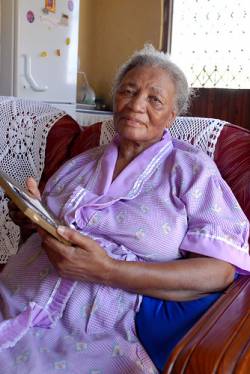14 November is World Diabetes Day, a disease which according to the World Health Organization (WHO), affects more than 180 million people worldwide. WHO also estimates that the prevalence of diabetes in Africa varies between one and 20%. The global spread of diabetes has given it all the characteristics of a pandemic.
 WHO projects that the number of people with diabetes is likely to more than double by 2030. In 2005, an estimated 1.1 million people died from diabetes, almost 80% of them occurring in low and middle-income countries. Diabetes is no longer a disease of affluent countries; it is affecting people all over the world.
WHO projects that the number of people with diabetes is likely to more than double by 2030. In 2005, an estimated 1.1 million people died from diabetes, almost 80% of them occurring in low and middle-income countries. Diabetes is no longer a disease of affluent countries; it is affecting people all over the world.
Global health problem
Diabetes is particularly serious due to its complications: cardiovascular ailments, cerebral vascular accidents, renal insufficiency, blindness, sexual impotence and gangrene of the feet which can lead to amputation. Diabetes and associated chronic conditions are rapidly emerging as major and global health problems.
Research also shows that diabetes affects older people disproportionately. For example, in developing countries, the majority of those with the disease are aged between 45 and 64.
My parents are both diabetic. Most of their friends and relatives the same age have diabetes. I have watched relatives succumb to diabetes-related complications. The increase in the number of cases of people living with diabetes in Africa is truly shocking.
In fact, I almost expect most of the older people I meet to be diabetic and am often surprised when I find out they are not! In the past, it was rare to find older people suffering from diabetes. My paternal grandparents are the only people I knew of their age at the time who were diabetic.
The costs of diabetes
Due to the hereditary factor, I expect that I will become diabetic. This scares me tremendously. I have watched my parents work their day-to-day schedules around doctors’ appointments, buying expensive medication and visiting their friends who are ill and even attending funerals. The financial costs of living with diabetes is daunting, especially in Africa where older people do not have a steady income and medical insurance.
My parents are the luckier ones. In fact, they and most of their friends are lucky to have some income and family support during their illness. I dread to think of older people, the urban and rural poor, who cannot afford the medication, who do not have money to visit medical facilities and who die because they did not know enough about their condition or were not even diagnosed.
I need to work hard to reduce the risk of developing diabetes. That is the challenge that younger people and governments need to embrace. While diabetes may not be reversed, it can be contained. The need to focus on non-communicable diseases is now, more than ever before, important for the African continent. The cost of illnesses such as diabetes is high. Just ask my parents.
Find out more about our work to support older people with non-communicable diseases.
